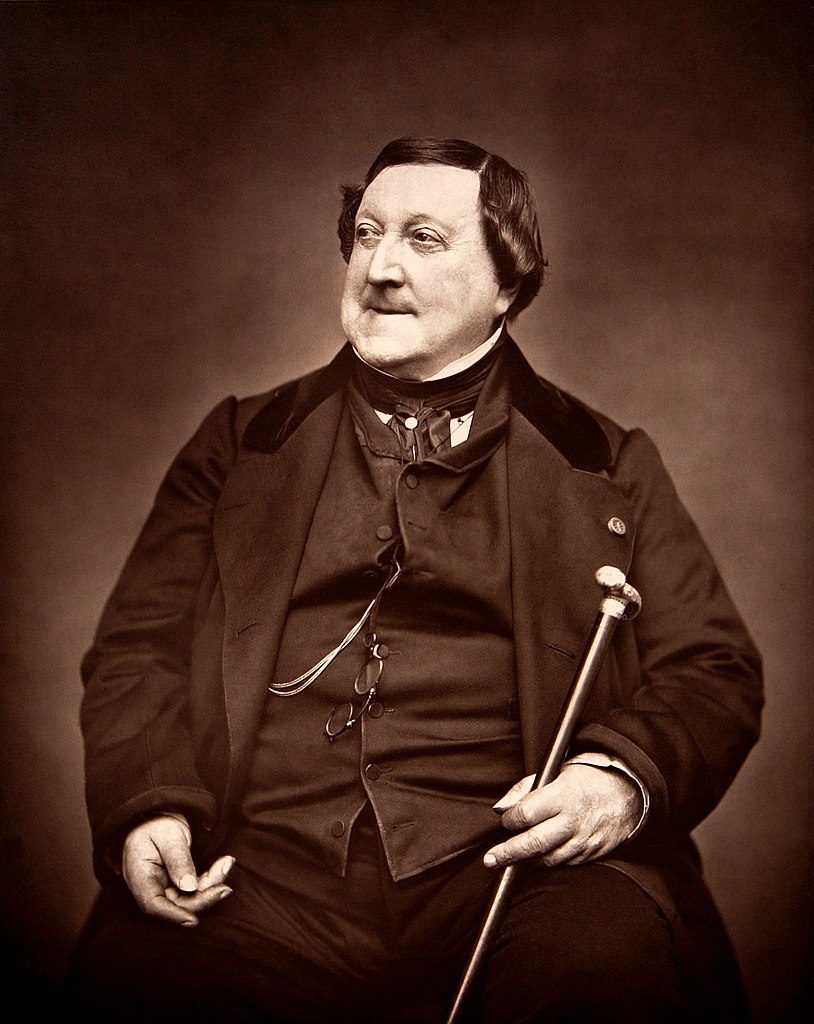Rossini, La Gazza Ladra Overture
 Gioachino Rossini (1792-1868) made his fortune early composing operas and then, at the young age of 37, he quit. With 34 operas under his belt, he spent the last 40 years of his life writing no operas and very little of anything else.
Gioachino Rossini (1792-1868) made his fortune early composing operas and then, at the young age of 37, he quit. With 34 operas under his belt, he spent the last 40 years of his life writing no operas and very little of anything else.
We quoted William Walton a couple of weeks ago saying, “These days it is very sad for a composer to grow old. . . . I seriously advise all sensitive composers to die at the age of 37.” Rossini may have partly shared that sentiment, but realized that dying wasn’t the only way out. Instead, he lived well, ate well, and hosted one of the leading salons in Paris.
Rossini was the master of opera buffa, the comic opera of Italy. But he composed numerous opera seria as well. He studied in Bologna and had some early successes at La Scala in Milan and in Venice. In 1815 he became the director of music for the royal theaters in Naples. In 1816, he composed his most famous opera, The Barber of Seville. The next year he completed La Cenerentola (Cinderella), one of the operas that has our five-year-old granddaughter spellbound.
La Gazza Ladra (The Thieving Magpie) premiered in 1817 at La Scala. It is best known for its playful overture with a very prominent snare drum and strong imagery of the mischievous bird. The originality, vivid drama and excitement in Rossini’s music account for much of his popularity. Recall another famous overture with those traits from his last opera, William Tell—forever etched in the memories of my generation as the theme from The Lone Ranger. Rossini clearly deserves to be known for his own operas as opposed to a 50s Western, but there’s no doubt that his music grabbed the attention and captured the imagination of children.
Perhaps that’s what my granddaughter has figured out—that Rossini is fun and exciting—only she has the benefit of learning the opera.



